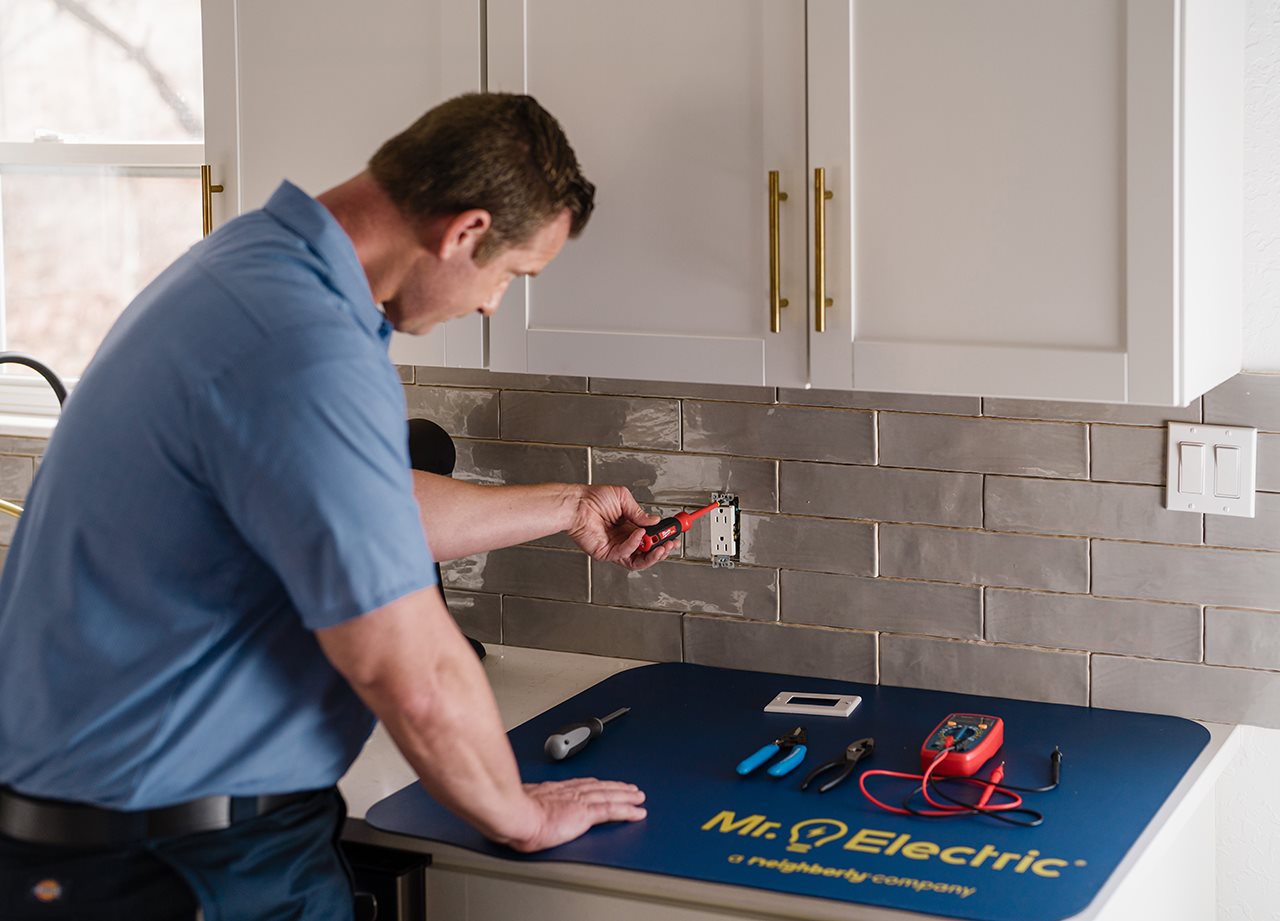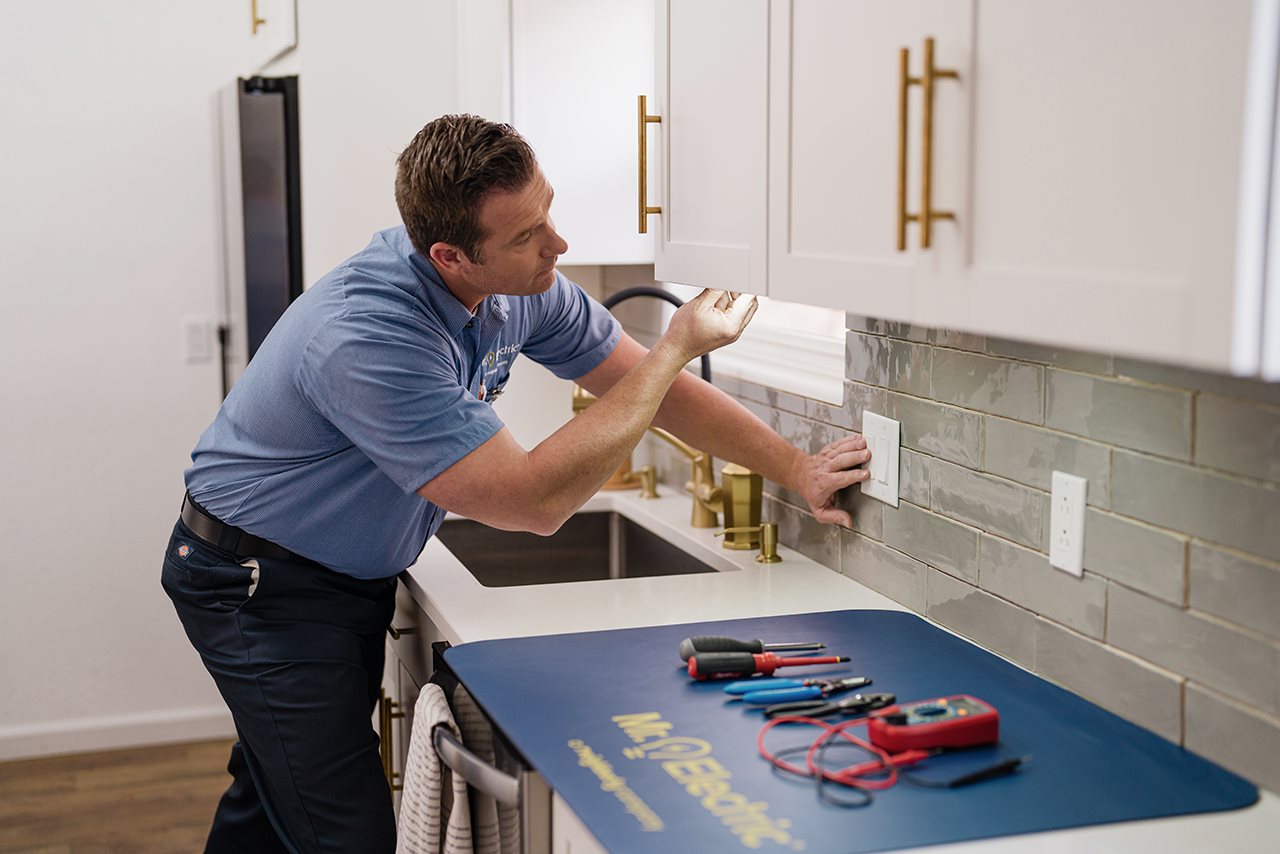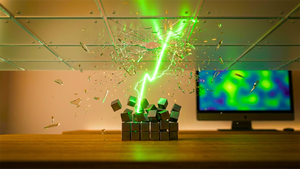(BPT) - Did you know electrical hazards cause over 50,000 home fires annually? According to the Electrical Safety Foundation International, home electrical fires account for around 51,000 U.S. fires each year - plus nearly 500 deaths, over 1,400 injuries and $1.3 billion in property damage. Heading into warmer months, electrical systems can be overtaxed by air conditioning and threatened by stormy weather. Whether you live in an older home or just want to prevent future problems, now's the perfect time to prioritize electrical safety.
For National Electrical Safety Month, give yourself peace of mind by learning about electrical safety and taking steps to ensure your home's system is in good shape. The experts at Mr. Electric®, a Neighborly Company, offer tips for improving the safety and efficiency of your home's electrical system.
1. Learn about the dangers of overloaded circuits
Chances are, you've probably caused a circuit overload before. Most modern homes easily handle circuit overloads. Usually, an overload trips a circuit breaker and all you have to do is flip it back on. However, overloading an electrical circuit can cause serious problems, and if it happens frequently, it's a sign your system needs some help.
An overloaded circuit occurs when too much electrical demand is placed on a single circuit, such as many appliances used at once in your kitchen. An electrician can check that high-consumption devices are distributed across several circuits to avoid frying your wiring, destroying devices - and preventing fires, shocks or electrocution.
If you regularly experience overloaded circuits, your circuits are probably insufficient. A professional electrician can install a new circuit breaker for a better flow of electricity throughout your home. An electrician can also check your home's wiring to ensure it can keep up with today's power demands.

While you're learning about electrical safety, be sure to educate the children in your household about potential dangers as well. You can find information about safety practices for children here.
2. Schedule an Electrical Home Safety Check
Older homes were not designed to handle today's electrical demands, including appliances, technology and more. If your home is over 25 years old, or you haven't had an electrician assess your system for a long time, an Electrical Home Safety Check can help ensure you won't have problems down the road.

When Mr. Electric® does a home safety check, they carry out a thorough exam of your entire electrical system to ensure all electrical wires, systems and components meet legal safety standards, using the National Electrical Code (NEC) as its primary guideline. This is crucial for the safety of your home and everyone in it. On completion of your electrical home safety check, your service professional will provide a detailed checklist including areas in need of immediate attention, plus recommendations for improvements.
3. Maintain your home's electrical system
Your electrician can provide advice on areas that are crucial to help safeguard against future problems, including:
- Testing GFCI outlets: Ground-Fault Circuit Interrupters (GFCIs) should be tested monthly to make sure they work properly in kitchens, bathrooms and outdoor areas.
- Having surge protection installed: Whole-home surge protectors help safeguard appliances and electronics from power surges caused by events like electrical overload, faulty wiring, power outages, and power restoration after an outage.
- Getting to know your panel: Your electrician can help ensure every element of your electrical panel is labeled correctly. Then you can make sure your family also knows how to shut off the power in case of an emergency.
4. Consider upgrades
Your electrician can help you implement upgrades that may make a big difference in preventing circuit overloads and other common issues, especially in older homes. These include:
- Panel upgrades: If your home still has a 100-amp panel or outdated fuses, upgrading to a modern 200-amp panel can support today's electrical needs safely.
- Smart home devices: Adding smart switches, outlets and lighting controls can improve convenience and energy efficiency.
- EV charger installation: Considering an electric vehicle? Installing a Level 2 charger ensures faster, safer charging.
- Backup generator, transfer switch standby generator or manual transfer switch: These can keep your home's essential circuits powered on during power outages.
You can also do easy DIY upgrades yourself, such as swapping out old bulbs for energy-efficient LED lighting, which enhances home lighting and reduces electricity use, and can help save on energy bills.
But remember, leave the electrical work to professional electricians for the safest, most reliable results. Visit MrElectric.com/safety-month to learn more and to find an electrician near you.





